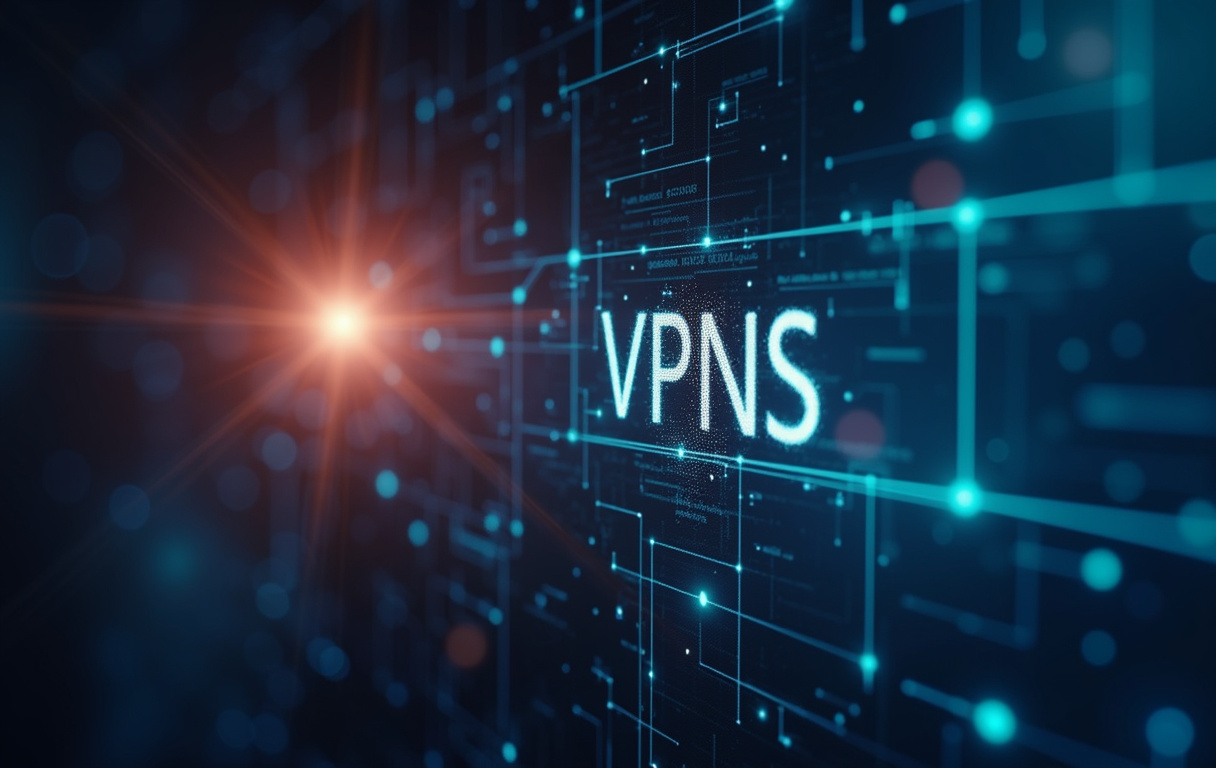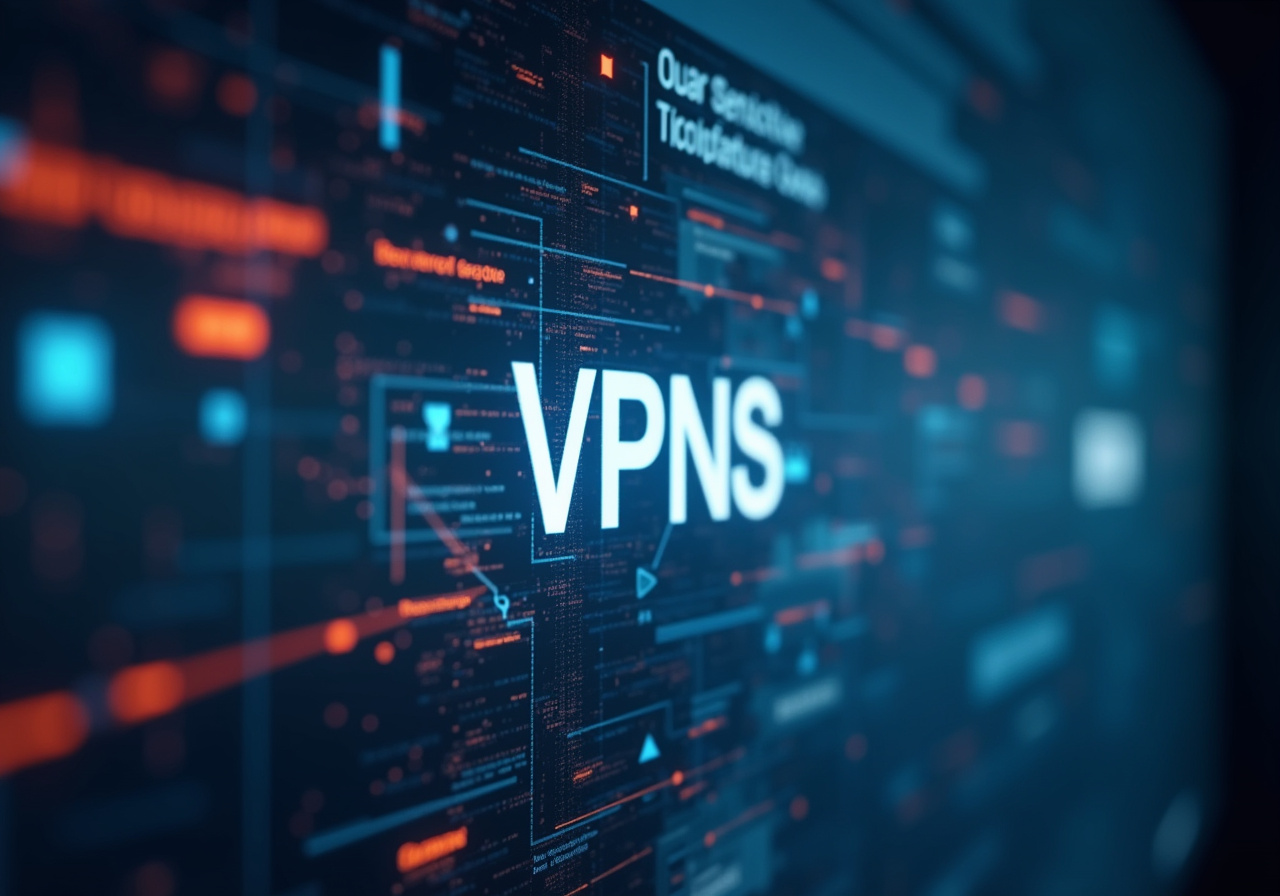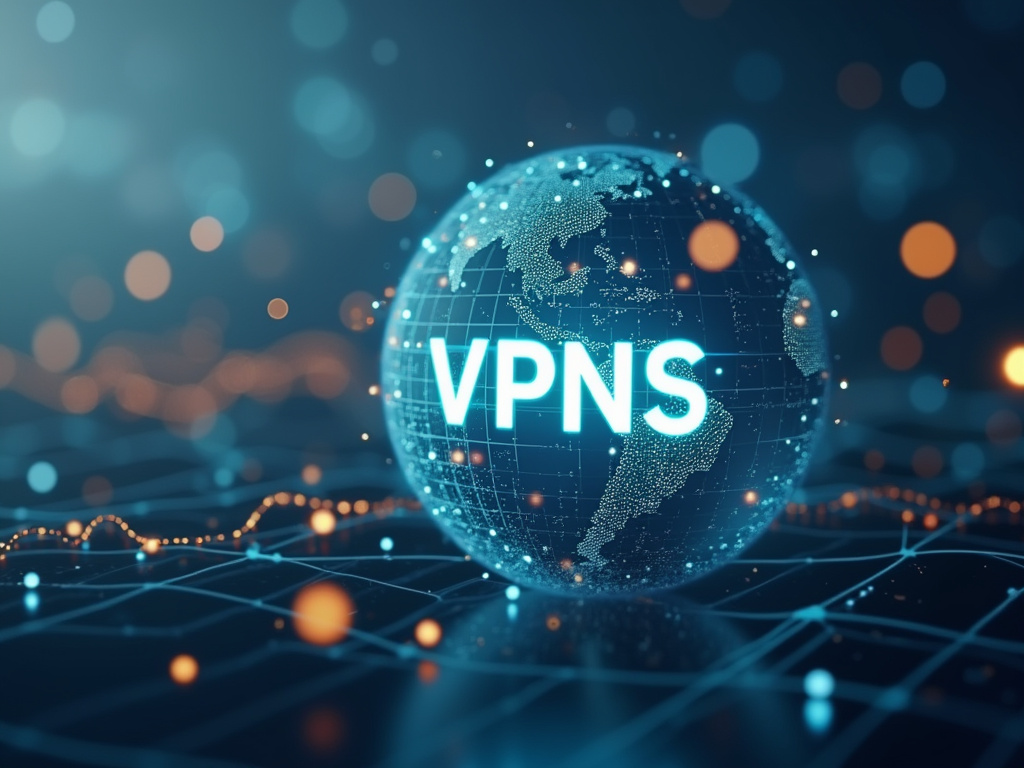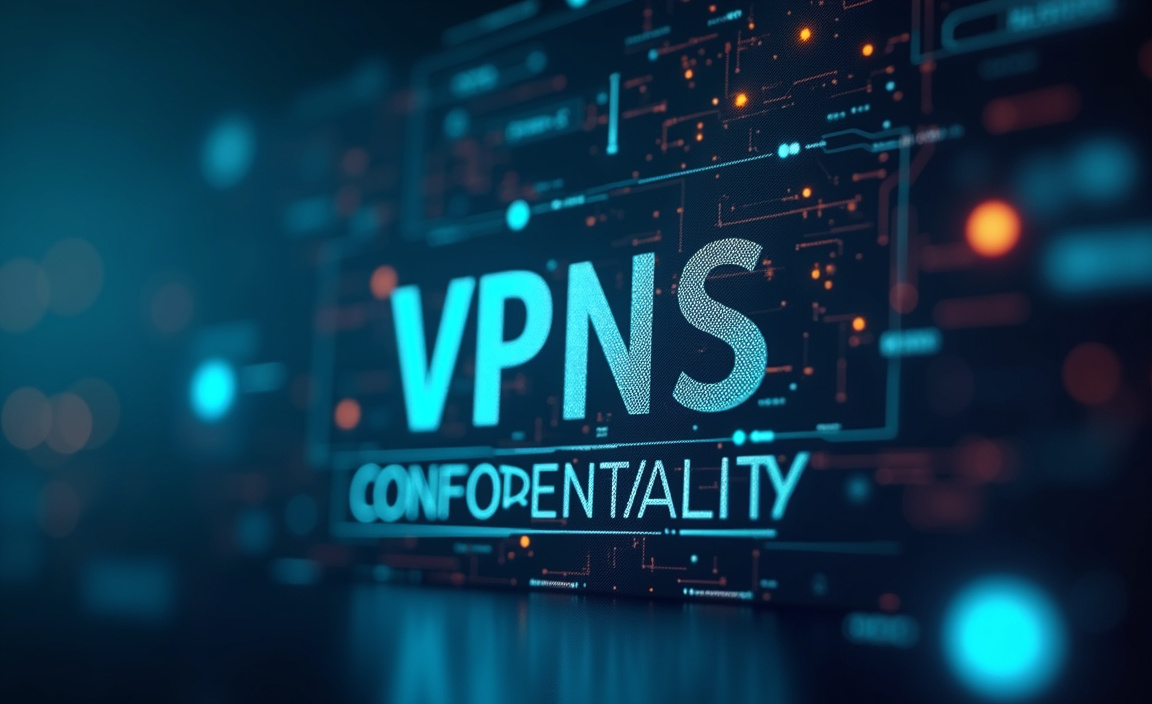VPNs for Space Exploration Projects: Protecting Research Data

Table of Contents
The Critical Role of Data Protection in Space Exploration
Space exploration, a grand testament to human curiosity and technological prowess, pushes the boundaries of our understanding of the universe. This ambitious endeavor relies heavily on the generation, analysis, and dissemination of vast amounts of research data. From intricate satellite imagery of distant galaxies to complex simulations of planetary climates, the data collected in space exploration is not only scientifically invaluable but also strategically significant.
The integrity, confidentiality, and accessibility of this data are paramount to the success of any space exploration project, impacting everything from mission planning and execution to the advancement of our fundamental knowledge of the cosmos. A single breach, a corruption of data, or a lapse in security can have catastrophic consequences, jeopardizing years of research, impacting international collaborations, and potentially even compromising national security interests. Given the interconnected nature of modern space exploration, involving inter-agency partnerships, global research teams, and reliance on terrestrial networks fraught with vulnerabilities, ensuring robust data protection is a complex and multifaceted challenge.
In this environment, space exploration VPN solutions emerge not as mere tools, but as indispensable guardians of research data, ensuring its integrity, confidentiality, and availability throughout its lifecycle. These solutions provide a critical layer of security, safeguarding this precious information against a growing landscape of cyber threats and vulnerabilities. The sheer volume and sensitivity of research data in space exploration make it an attractive target for malicious actors, ranging from nation-state adversaries seeking to gain a competitive edge to cybercriminals looking to exploit vulnerabilities for financial profit.
The risks are amplified by the distributed nature of space exploration projects, which often involve collaboration among researchers and institutions across different geographical locations. This creates a complex network of data flows, making it difficult to maintain centralized control and increasing the potential for data breaches or leaks. Furthermore, the reliance on terrestrial communication networks to transmit data from space-based instruments to ground stations exposes the data to potential interception and tampering.
These networks, while vital for enabling communication, are inherently vulnerable to eavesdropping and malicious attacks. Without proper security measures, sensitive research data could be intercepted by unauthorized parties, potentially compromising mission objectives or revealing proprietary information. The implementation of space exploration VPNs acts as a vital countermeasure, establishing secure and encrypted communication channels between researchers, institutions, and space-based assets.
By creating a virtual tunnel that shields data from prying eyes, VPNs effectively mitigate the risk of interception and unauthorized access, bolstering the overall security posture of space exploration projects. The use of a robust VPN solution goes beyond mere data encryption and access validation, it protects privacy, data integrity and intellectual findings. The protection of all the findings of space exploration protects the future of human expansion into the final frontier.
Enhancing Project Data Protection with VPNs
One of the most significant and persistent threats to research data security in the context of space exploration stems from unauthorized access. Space agencies, research institutions, and collaborating organizations operate within intricately interconnected networks, spanning continents and linking diverse facilities. This inherent complexity, while fostering collaboration and scientific progress, unfortunately, simultaneously creates multiple entry points and vulnerabilities that malicious actors can exploit to gain unauthorized access to sensitive data.
Data breaches may arise through a multitude of attack vectors, including compromised user credentials obtained through phishing campaigns, the exploitation of unpatched software vulnerabilities in critical systems, or even sophisticated social engineering tactics targeting personnel with access privileges. The potential repercussions of such breaches are extensive and far-reaching, potentially leading to the theft of invaluable research findings that represent years of dedicated work and substantial financial investment, the intentional manipulation of critical scientific data with the potential to distort research outcomes, or the leakage of sensitive engineering schematics that could compromise mission integrity. Furthermore, the inherent nature of international scientific collaborations and remote fieldwork necessitates data transmission across public networks, introducing the risk of interception and potential compromise.
Data transmitted without adequate encryption measures can be easily intercepted by cybercriminals or state-sponsored actors, leading to the exposure of proprietary information, the compromise of ongoing experiments, or even the undermining of strategic objectives. A well-configured space exploration VPN provides a robust defense against unauthorized access by establishing secure, encrypted connections between researchers, facilities, and data repositories, irrespective of their geographical location. This VPN functions by creating a highly secure virtual tunnel through which all network traffic is routed, encrypting the data at the source and decrypting it at the destination.
This encryption process renders the data unreadable to any unauthorized individuals who may attempt to intercept it along the way, effectively shielding sensitive information from prying eyes. Furthermore, VPNs typically mask the user's IP address, making it significantly more difficult for attackers to identify and target specific individuals or systems, thus mitigating the risk of targeted attacks and surveillance, especially for researchers operating in politically sensitive or potentially hostile environments. Beyond simply encrypting data, VPNs also provide a centralized point of control for managing access to sensitive resources.
By implementing strict authentication mechanisms and access control policies, VPN administrators can ensure that only authorized personnel are granted access to critical data and systems. This granular level of access control helps to minimize the risk of insider threats and accidental data leaks, further enhancing the overall security posture of a space exploration project. The ability to establish secure connections from virtually any location around the globe is paramount for facilitating seamless international collaborations and effectively supporting remote research activities, all without compromising the stringent data security requirements inherent in space exploration.
This flexibility ensures that researchers can collaborate effectively and access the data they need, regardless of their physical location, ultimately accelerating the pace of scientific discovery. These VPNs serve as an effective countermeasure to threats that may arise, and enhance the overall security system.
VPN for services
Beyond the critical imperative of preventing unauthorized access, upholding data integrity stands as a cornerstone of research data security, particularly within the highly exacting context of space exploration projects. Data integrity, in essence, signifies the unwavering accuracy, impeccable consistency, and unyielding reliability of data throughout its entire lifecycle, from the moment of its creation to its eventual archival. In the realm of space exploration, even seemingly minor discrepancies or alterations in data can precipitate far-reaching and potentially catastrophic consequences.
These consequences can range from the propagation of flawed scientific conclusions based on corrupted datasets, to the creation of inaccurate simulations of complex extraterrestrial phenomena, ultimately leading to misinformed decisions, and, in the worst-case scenario, even catastrophic mission failures resulting from faulty data used in critical calculations or navigation systems. The threats to data integrity are multifaceted and diverse, arising from a spectrum of potential sources, including accidental hardware malfunctions leading to data corruption, the occurrence of unexpected software errors during data processing or analysis, transmission errors arising during the transfer of vast datasets across networks, and, perhaps most alarmingly, malicious tampering perpetrated by unauthorized users, who may intentionally alter or corrupt data for nefarious purposes. To effectively mitigate these ever-present threats and safeguard data integrity, space exploration VPN solutions play an indispensable role by incorporating robust verification and validation mechanisms into their secure communication channels.
Many VPN protocols are engineered with built-in checksums or highly sophisticated hash functions, which are employed to meticulously detect any instances of data corruption or unauthorized tampering that may occur during the critical transmission process. These ingenious mechanisms function by generating a unique fingerprint of the data at the source, which is then transmitted along with the data itself. Upon reaching its intended destination, the receiving system independently calculates a new fingerprint of the received data and compares it to the original fingerprint.
If any discrepancy is detected between the two fingerprints, it serves as an immediate indication that the data has been compromised in some way, triggering appropriate error handling procedures to prevent the use of corrupted data. In addition to their role in preventing data corruption, VPNs also contribute significantly to maintaining data provenance, a crucial aspect of data integrity that refers to the ability to meticulously track the origin, history, and transformations of data throughout its lifecycle. By maintaining comprehensive logs of all VPN connections, user activity, and data transfer events, administrators can establish a detailed audit trail that provides valuable insights into the movement and manipulation of data.
This audit trail proves invaluable in identifying and investigating any potential data breaches, irregularities, or suspicious activities that may compromise data integrity. This detailed ledger enhances the investigation of any potential data breaches within the system and increases the overall security. By ensuring data integrity, VPNs lay the groundwork for assured scientific accuracy and validity.
The Future of VPNs in Subscription Services: Enhanced Security and Privacy
The protection of intellectual findings constitutes a critical imperative within the context of space exploration, underscoring the need for robust security measures to safeguard the innovations and discoveries arising from these ambitious endeavors. Space exploration projects often yield groundbreaking results, leading to the development of novel technologies, scientific breakthroughs, and proprietary data, all of which represent significant intellectual property assets with substantial commercial and strategic value. Protecting these intellectual findings from a variety of potential threats, including theft by competitors, espionage attempts by foreign entities, or unauthorized use by internal actors, is absolutely essential for maintaining a competitive advantage in the space sector and ensuring that the benefits of space exploration are realized by the originating organization or nation, rather than being misappropriated by others.
Intellectual property vulnerabilities can arise at nearly every stage of the research process, from the initial conceptualization of a groundbreaking idea to the eventual publication of research findings in scientific journals. Competitors, driven by the desire to gain a competitive edge, may actively attempt to gain unauthorized access to confidential research data, proprietary engineering designs, or sophisticated algorithms developed as part of space exploration projects. These attempts can manifest in various forms, including targeted cyberattacks against research institutions, the cultivation of insider threats within organizations, or even surreptitious industrial espionage operations aimed at stealing valuable intellectual property.
Space exploration VPN solutions offer a crucial multi-layered defense strategy for protecting intellectual findings by securing access to sensitive data and meticulously controlling the flow of information within research networks. By implementing stringent access control mechanisms and robust authentication procedures, VPNs guarantee that only authorized personnel with the appropriate credentials can access valuable intellectual property assets. Implementing multi-factor authentication protocols adds an additional layer of security by requiring users to provide multiple forms of verification, such as a strong password combined with a one-time code generated by a mobile app or a biometric scan, before being granted access to sensitive data.
This significantly reduces the risk of unauthorized access resulting from compromised passwords or stolen credentials. Furthermore, the encryption capabilities inherent in VPN technology ensure that intellectual property is protected during transmission, preventing unauthorized parties from intercepting and stealing valuable information as it travels across networks. VPNs can also be configured to restrict access to specific resources or devices based on user roles and permissions, limiting the potential for data leakage or unauthorized copying of sensitive files.
This granular level of control helps to minimize the risk of both intentional and unintentional data breaches, further strengthening the protection of intellectual property. The strategic deployment of VPN technology, coupled with proactive security policies and employee training programs, provides a robust defense against intellectual property theft, effectively safeguarding the valuable innovations and discoveries generated through space exploration research, allowing organizations to reap the full benefits of their investments in these ambitious endeavors. By securing the network and data findings the future of data and space exploration will benefit humanity as a whole.
The successful implementation of a robust and effective data security strategy for space exploration projects hinges critically upon selecting the right VPN solution. A VPN choice is fundamental, as different VPN protocols offer varying degrees of security, performance characteristics, and compatibility across diverse platforms and devices. Understanding these nuances is paramount to making an informed decision.
Among the most widely adopted VPN protocols are OpenVPN, IPsec (Internet Protocol Security), and the more recent WireGuard, each possessing its own unique strengths and weaknesses. OpenVPN, renowned for its versatility and robust security features, supports a broad spectrum of encryption algorithms and authentication methods. It is often regarded as the gold standard for VPN security due to its high degree of customizability and its open-source nature, which allows for continuous scrutiny and improvement by the security community.
However, its extensive configuration options can make it more complex to set up and manage compared to other protocols. IPsec, another highly regarded VPN protocol, is frequently employed in enterprise environments due to its strong encryption and robust authentication capabilities. It is often implemented as a suite of protocols, providing comprehensive security for network communications.
However, its relative lack of flexibility compared to OpenVPN may make it less suitable for certain use cases. WireGuard, a relatively new entrant in the VPN protocol arena, has garnered significant attention for its focus on both speed and security. It leverages state-of-the-art cryptography and a streamlined codebase, resulting in a lightweight and efficient protocol that can deliver exceptional performance.
Its simplicity and ease of configuration make it an attractive option for a wide range of applications. Beyond the selection of an appropriate VPN protocol, the choice of a reputable and trustworthy VPN service provider is of paramount importance. The provider should possess a demonstrable track record of safeguarding user privacy and ensuring data security, as well as a commitment to transparency and ethical business practices.
Key factors to consider when evaluating VPN service providers include their logging policies, their jurisdiction and legal obligations, their security infrastructure, and their responsiveness to security incidents. A reputable provider should have a clear and concise logging policy that outlines what data they collect, how they store it, and how they use it. Ideally, they should adhere.
Selecting the correct option from space exploration VPNS can be tough, but keeping in mind the factors above will make your decision easier .
Stay Updated
Get the latest VPN news, tips, and exclusive deals to your inbox.




